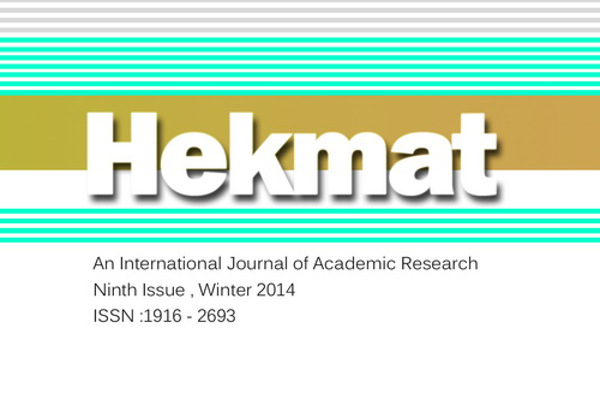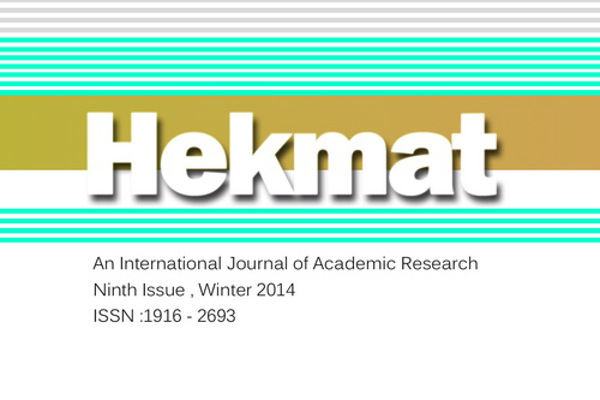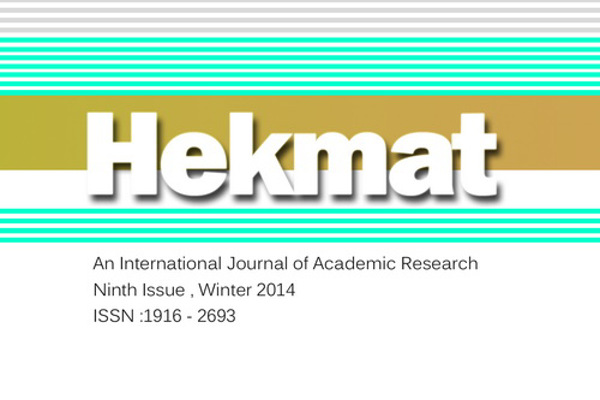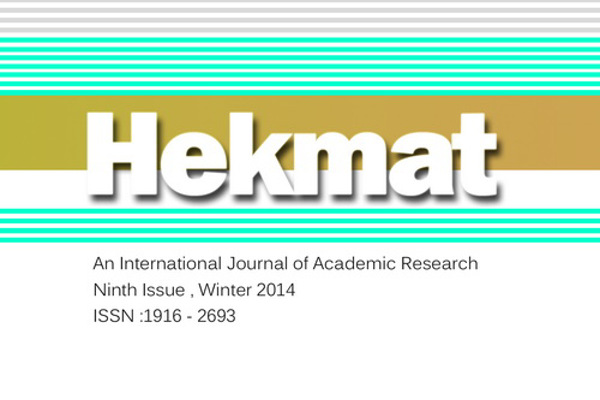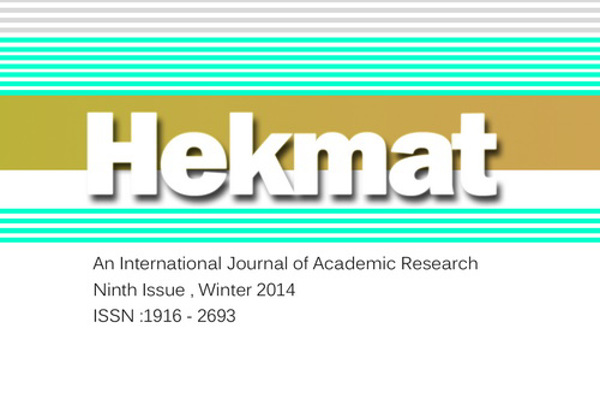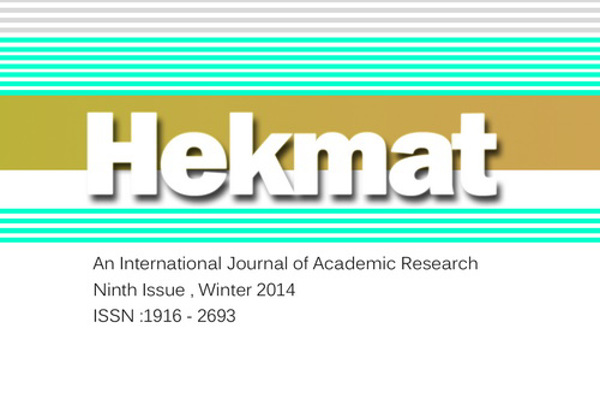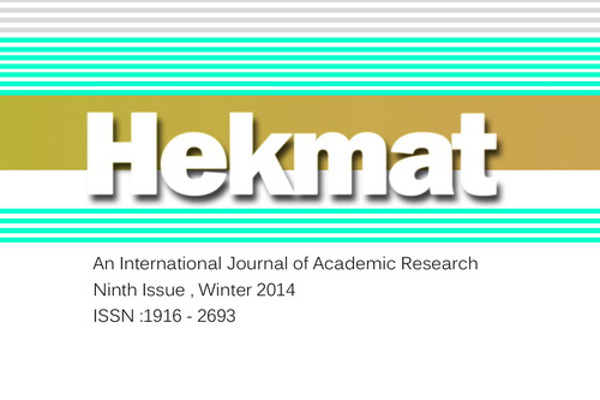Islam and the Economic System / By: Seyed Hussein Mir Moezzy
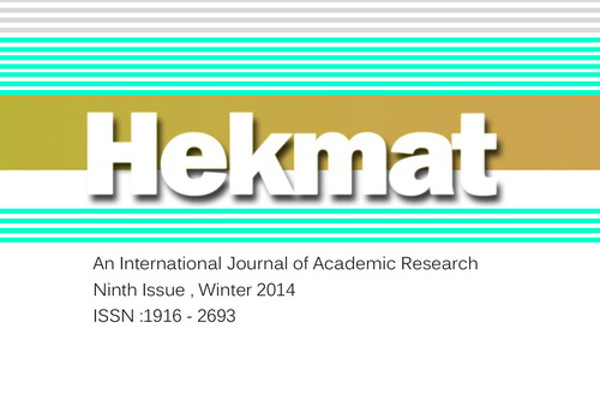
The concepts of system and economic system
The term system is relatively new in its especial sense meant today. It was introduced in the middle of the twentieth century by the German biologist Ludwig von Bertalanffy. It was later used in the general system theory applicable to many different disciplines. So, terms such as economic system, communication system, and information system came into being[1]. In the general theory of systems, a system is defined as “any set composed of interconnected parts geared towards achieving a particular end by acting in harmony”[2].
Systems differ from one another in accordance to the goals they pursue, the parts they consist of, and the sort of relation among the parts. Consequently, we can speak about natural systems, man- made systems, and social systems. The solar system is an example of the first, the internal system of an aircraft is an example of the second. A nation is an example of the third. Social systems are made up of people, their behavior, and the relationship among them if they are altogether preplanned in order to achieve a goal. Social systems in this sense are systems controlling human life in all its dimensions and can be composed of subsystems such as political system, economic system, cultural system, and the like.
A new notion must be introduced as a constituent of social system. It is values and beliefs. This component imposes itself because a social system is, as we have already seen, made up of human behavior and relations between individuals. They are in turn influenced by the opinions they hold. The content of these opinions relate to beliefs and values. As the result, a social system is one in which people’s behavior and relations are directed towards gaining ends in accordance with the opinions they hold.
From this point of view, we can say that economic system is a subsystem to social system. The word “economic” refers not to a set of activities but to a facet of every activity people have on the basis of calculating cost and effect with the purpose of providing livelihood. The general objectives an economic system may pursue can include the establishment of justice, self-sufficiency, development, and public welfare and well being. In different economic systems, these goals are interpreted and heretically arranged differently as their values and beliefs dictate.
Veklav halsukski believes that “there are four fundamental factors that shape economic systems: resources, participants, processes, and institutions”[3]. He goes on explaining them in detail.
Resources
The list of resources is a long one including land, water, climate, natural resources, the physical, chemical, and biological features of things, production tools, buildings, factories, books, financial deposits, human resources, skills, accumulated information, technology, and the overall natural and non natural wealth and possession of a nation. This list changes by the pass of time and the advancement of science and technology.
Participants
People are participants both as individuals as well as groups. To facilitate the analysis, people are usually conceived as groups sharing common interests. In economic literature, the participants in an economic system are divided into three subdivisions: firms, families, and the state. The first is the agent that produces income out of expenditure. The second constitutes the final consumer at the same time as labor supply and capital owner. The third is the agent that produces public good, safeguards the interests of individuals, and guards the interest of society. It is noteworthy that the entity which is divided into groups here is not persons but personalities and roles. As a matter of fact, all producers are consumers at the same time. Exceptions are perhaps the very aged and the handicapped who consume but cannot produce. Government employees too are peopling hence consumers. Depending on the demands of our analysis, we can introduce amendments to this division.
Processes
The function of the economic system is explained in terms of process. Process is made up of elements arranged in logical order. Information constitutes decision making and implementation results in the outcomes. So, there are four consecutive stages: information→ decision→ implementation→ outcome. The outcome may be of any kind; production growth, income distribution pattern, price change, accumulation of stock, change of unemployment rate, environmental gulf, or new inventions and explorations. Consequently, we can talk of the processes of production or distribution or price variation or unemployment rate etc. in an economic system.
Institutions
An institution is a particular pattern of relationship that connects participants to one another. These patterns actually make up the elements involved in process. In this sense, an institution as an abstract entity which must not be mistaken for physical objects such as buildings, offices, factories, stack exchange galleries, or shops where fixed behavior patterns occur repeatedly. For example, market is an economic institution in the sense that it embodies a fixed pattern of selling and buying. Private ownership is another economic institution. It institutionalizes the utilization of particular entities and confines the right of this utilization to a special individual. Likewise, we can speak of borrowing, gift and tax as economic institutions. They are established via a combination of legal rules, social punishment codes, and cultural systems that prevail in a society.
What we have so far said gives a picture of systems as objects operating in the external world independent of our minds. Processes, in particular, designate the functions of real existing systems. In order to make use of these notions in discussing a school, we need to introduce some qualifications. We shall distinguish between the two concepts of “system”; 1- “system” as a reality existing yonder producing particular results in a given period of time at a particular location; 2- “system” as a theoretical plan based on a school, theory, or religion. What we pursue in this paper is the formalization of an economic system in the second sense of the term with three constituting factors: the resources, the participants, and the institutions.
In this sense of system, institutions are patterns depicting the relation between participants and sources as well as the relation among participants themselves. It is possible to implement these patterns in a society through the aforementioned methods. So, we can say that two distinct kinds of institutions are discernible in an economic system; institutions depicting the relation between participants and sources and institutions depicting the relations among the participants. Examples of the first kind may be consumption pattern and investment. Examples for the second kind can be sale pattern, rent pattern, lending pattern, alms giving pattern, gifting pattern, taxation pattern, and the state expenditure.
So far, we made no mention of processes in the economic system because processes belong to the level of implementation rather than planning. Having planned an economic system theoretically in detail, the time becomes ripe for implementing it in a particular place and time. Then, information collection, decision making, execution, and outcome analysis as successive steps or processes come to be discussed. From this explanation, we can conclude a definition for economic system: a set of behavioral patterns connecting participants in a system to one another and to resources aiming at definite goals according to a particular consistent organization of values and beliefs they hold.
Behavioral pattern
Positive economics uses especial methods for anticipating and understanding human behavior. These methods are called model making or pattern making. A model in this sense is the display of what we consider as the most important factors responsible for the emergence of the behavior under study. Models usually neglect some effective factors purposefully in order to focus on some other factors. For instance, the model explaining why people opt for investment concentrates on income level and inflation rate intentionally omitting other factors like individuals’ wealth. Economic models may be written in mathematical language with the help of functions and arguments or geometrical terms or statistical charts.[4]
As we are dealing with the theoretical economic systems in Islam, we mean by behavioral pattern what explains the behavior of people who are brought up according to the teachings of Islam rather than what explains the objective factors forming the behavior of people. Consequently, speaking about consumption pattern or saving pattern in the Islamic economic system amounts to explaining the motives people may have in so doing, the rules governing their consumption, the limits on their consumption or saving etc. when they are supposed to be bound by Islamic teachings. We mean by alms giving pattern, lending pattern, and the like the model Islam prescribes and tries to implement.
Fixed universal Islamic economic system
Islam has introduced a particular worldview and a special value system that remain unaltered in different times and locations. We can show that this value system logically entails a set of objectives referred to in Islamic sources (the Koran and hadith). Hence, we have textual evidence to prove what Islamic objectives in an economic system are. There is hardly any Muslim thinker found who disputes this point. Therefore, we do not elaborate here. We would rather turn to the question whether Islam has also introduced a particular set of behavioral patterns pertinent to economics? Are these patterns universal and unalterable? Or should Islamic patterns be defined in every time and location on the basis of the requirements?
We shall show, in this paper, that there is a universal unalterable Islamic economy including universal and fixed behavioral patterns. We show this on three bases.
Theological demonstration
Our theological demonstration rests on three premises:
1. The concept of prosperity in Islam
Capitalism rests on hedonism as a philosophical basis. Accordingly, the goal of capitalistic economic system is to maximize pleasure and minimize pain. The ultimate ideal of capitalism is to provide maximum pleasure possible for maximum number of people with the least possible pain and effort[5].
Human beings pursue pleasure and avoid pain instinctively. Happiness is indeed no more than more pleasure and less pain. Nonetheless, there are two rational principles which must be taken into account in this regard: one ought to prefer more sustainable pleasures to transient ones and one ought to opt for a pleasure that is higher qualitatively when one has to choose.
Hedonism is wrong in confining pleasure and pain in mundane transient ones. Islamic teachings, in contrast, introduce two sets of pleasure and pain; the transient mundane and the everlasting in the hereafter[6]. The latter supersedes the former both qualitatively and quantitatively. Islam recognizes the instinctive tendency to pleasure but tries to attract human attention to higher pleasures by broadening his view and understanding. Happiness is, according to Islam, the sum of maximal mundane as well as next-worldly pleasures. Since the everlasting pleasure of the hereafter is higher than the mundane transient one, when they clash, the former is preferable. Consequently, the mundane pleasures are permissible so long as they do not hinder those of the hereafter.
The mundane pleasures conflicting with eternal ones can be categorized in three divisions:
- Mundane pleasures hindering eternal ones and causing eternal pain in the afterlife are rationally prohibited.
- Mundane pleasures that hinder higher eternal pleasures without bringing about eternal pain are inferior rationally.
- Mundane pleasures that conflict only with the higher eternal pleasures experienced by the very few chosen friends of God are permissible but worthwhile rejecting by the elect[7].
Keeping this classification in mind, we can now pose this question: can human beings discern the path to prosperity, happiness, and salvation on their own without divine assistance through revelation and prophets? Can human reason and scientific experience show the path? The answer is negative for sure. How can we understand the effect of our behavior in various respects affects our salvation? We cannot understand on our own how we must behave- say economically- in order to attain at the eternal peace and pleasure. We do not know how to maximize the sum of our worldly and next-worldly gains without divine help. For this reason, revelation comes to help us. Some economic behaviors are declared banned in the Koran and some are advised. The Koran tells us that usury, extravagance, and usurps, to name a few, are prohibited and will be punishable in the hereafter. Paying alms, lending money with no interest, zakat, khoms, and waqf are among good deeds you will be rewarded for in the hereafter.
2. Islam’s view of man
From the Islamic point of view, the purpose of creation of human beings[8] and the objective in appointing divine apostles and messengers[9]is to enable man, through education and training, to attain prosperity and salvation. Islam entertains a dualistic view of human nature; physical and spiritual[10]. The spiritual is the foundational aspect of human nature. Body accompanies the soul in this earthly life because the soul needs it as a tool to perform the actions it chooses to do. But, it is beyond doubt that human physical behaviors such as eating, clothing, working etc. leave their impacts on the soul. Some economic behaviors help human soul achieve further proximity to God and some act in reverse. It is beyond the capacity of our intellect to discern which action leaves which impact. For example, people are unable to fathom by their reason and empirical investigation, how and why a particular behavior such as eating a kind of food, or involving in usury or extravagance damage our spiritual life. We need divine revelation to help us make this distinction. This is why messengers are needed.
3. Causation
Islam understands the world from behind the spectacles of causation[11]. A firm system of causation rules the universe. This notion is shared by Deism as well with some subtle but important differences. The latter holds that God has created the world and the order governing it. But He does not interfere in sustaining it. The former thinks that God is both the creator and the sustainer. It is God that gives the causes their characteristic feature of being a cause thereby sustaining the universe through the causal system[12]. Accordingly, God may interfere in the normal procedures to neutralize a particular cause whenever He deems it appropriate to do so. For instance, when Abraham (be peace upon Him) was thrown into the inferno, God decided to take back the capability of burning from that fire[13]. Deism cannot accommodate for this phenomenon.
Another difference between the two aforementioned views can be spelled out thus: the philosophical foundations of capitalism see the natural order confined in the realm of physics while the Koran expands it to include the non-corporeal realm too. There are, from the Islamic perspective, two distinct general causal orders ruling over the world; the physical causal order and the nonphysical causal order[14]. It goes without saying that the two systems can never clash in spite of the fact that they are interconnected. A single phenomenon in natural world may be caused by two sets of effective elements; the physical factors and the abstract causes. Poverty, to give but one example, is an unfortunate fact brought about by the two sets of causes. Therefore, immaculate Imams (be peace upon Them) are seen to have prescribed methods for overcoming poverty such as imploring God to help, initiating good deeds, paying alms, saying midnight prayers and perpetual reciting of the incantation “la hawla wa la quwata illa billah”[15].The Koran endorses this approach saying:
“Had the inhabitants of cities, towns, and villages converted to the Faith and lived piously, we would have opened for them the gates of treasures from the heaven and the earth.”[16]
and
“Whosoever fears God shall see God providing him with some [miraculous] escape and livelihood from a source he cannot anticipate”[17].
Imam Ali (AS) says:
"God puts His sinful servants to test via withholding His bounties from them and reduction in their agricultural product lest they may sober up and repent, leave sinning, and take lesson, get the shock, and withdraw. God the Almighty has ordained that repentance bring about affluence and cause blessing to shower saying: “ask God to forgive thee for He forgives sinners, He sends the clouds to rain for you repeatedly and assists you with wealth and offspring”[18]so, may God bless those who repent, and implore for forgiveness of their wrongdoings and do that before their time is up[19]."
We may conclude that human reason and scientific knowledge fall short of understanding the abstract causes pertinent to economic phenomena. Hence, divine revelation is indispensable as God is the only omniscient who can let us understand them.
From these premises, we can draw conclusions. First, human prosperity and salvation are attained through maximization of pleasures in the two worlds with the next-worldly pleasures being superior. Second, man possesses two worlds; the physical and the spiritual. Third, two universal orders rule the universe and the human life; the corporeal causation system and the non-corporeal one that influence natural phenomena like drought and social phenomena like poverty. Under these circumstances, human reason and knowledge fall short of showing him how he can administer his life in a manner to cope with these causal systems and attain prosperity and salvation. Man needs divine guidance to achieve this end. Consequently, if suitable social and economic systems are not introduced by revelation, man remains ignorant of how to behave rightly. However, the Almighty God says:
"Verily, we have given man guidance to the path; he may be thankful or thankless.[20]"
Textual Evidence for Comprehensiveness of Islamic Sharia
Some authors expert in the exegesis of the Koran hold that everything needed by man for guidance is explained in the holy Koran. They site two verses of the Koran to prove their point:
"We did not overlook anything in the Book[21]."
and
"We have revealed to thee the book that explains everything as guidance, mercy and good news for Muslims[22]."
Interpreting these verses, Allameh Tabatabaeesays that as we see the Koran mentioning but very general outlines of what matters for prosperity of human individual and society refraining from detailed elaboration, we should infer either that the term “Book” in the verses refers to the “Protected Plate” (lawh mahfuz) rather than the Koran or that the term “explain” does not mean lingual expression[23]. However, there are several sayings of Imams emphasizing that Islamic Sharia includes the suitable social order which Islam renders right for societies. We quote two of them here.
- Sayed Aaraj told His holiness Imam Sadiq (AS), “Some so-called jurisprudents confess that they rely on their own personal opinion in matters which no divine judgment is found about”. The Imam replied, “They lie; there is nothing about which no judgment is made either in the Koran or in tradition”.[24]
- Abu Hamzah Thomali relates to His holiness Imam Baqir saying, “The holy messenger of God delivered a sermon on His last pilgrimage to Mecca where he said, 'O people! I swear to God that I have explained for you and enjoin you to do everything that helps keep you away from the hell or lead you to the heaven. I have explained to you and forbid everything that leads you to the hell or keeps you away from the Paradise'[25]."
These sayings like many other traditions[26] state that Sharia judges about everything pertinent to human prosperity in life and eternal salvation in the hereafter economic behavior too included. So, Islam has its word with regard to all economic relations. The judgments of Sharia in the field of economics must be derived from the sources of Sharia such as the Koran and sayings of infallible Imams via ijtihad. Patterns of behavior in economic field acceptable to Islam must then be constructed on the basis of these judgments.
Textual evidences
There are numerous verses in the holy Koran and many more sayings of the holy Prophet as well as immaculate Imams stating the norms to be followed in man-God relations, man- nature relations, and man to man relations. Imam Khomeini describes this lot as the set of rules governing the entire human life based on a special theory of life, society, and the world.
As God is omniscient and wise, His commandments must be in harmony with the ultimate purpose of the creation of human beings, i.e. human perfection and advancement in proximity to God. They must be consistent with the Islamic values and vision comprehending all aspects of human nature and all areas of human life including cultural, economic, and political.
Consequently, the religious texts pertaining to economic issues must contain universal fixed laws. To prove this point, we may invoke some textual evidences.
- There are a number of sayings indicating that Sharia laws are permanent laws. Imam Baqir, to quote just one, says:
"My grandfather the holy Prophet said, 'O people! What I have allowed are allowed for ever till the Day of Rise, and what I have prohibited is prohibited for ever till the Day of Rise. Beware! God has stated in the Koran what is allowed and what is banned and I have explained them in my practice…'[27]"
- There are innumerable cases where the immaculate Imams explain a Sharia law by invoking a Koranic verse or a saying of the holy Prophet or previous Imams. The jurists contemporary to the immaculate Imams used to invoke Koranic verses and sayings of the holy Prophet and Imams as the foundation of their verdicts. Bearing in mind the fact that successive Imams lived for about two centuries and always invoked the sayings of the holy Prophet and Imams when expressing an opinion in Sharia despite the perpetual changes in the cultural, economic, and political situations, we can infer that these religious texts invoked for judgment contain permanent universal laws rather than norms exclusively applicable to the early days of Islam.
- The Koranic verses and sayings of the Immaculate Imams expressing Sharia laws are expressions meant to be understood as stating fixed permanent norms. The verbal expressions of these statements enjoy itlaqmaqami. They are asserted with the intention to establish a rule. No time limit is included in these assertions. Hence, rational people infer that the rules established by them apply to all people anytime and anywhere.
- The majority of the said expressions are stated in the form of conditional statements or haqiqiah propositions[28]. They are verbally unqualified. So, they apply to all those who now live as well as those who will be born in the future. The majority of Koranic verses and sayings of the holy Prophet and immaculate Imams expressing a Sharia law enjoy this feature. Let us see some instances:
On Zakat, God says, "Verily, zakat is to be spent only on the poor, the needy, and the agents employed to collect it."[29]On Anfal, the Koran says, "They ask you about Anfal. Tell [them] anfal belong to God and Prophet."[30] On the responsibilities of the Islamic state, Imam Sadiq says, "The Muslim ruler ought to pay the debt of the citizens [when bankrupted] except for the dowry due to wives."[31] On loans, Imam Baqir says, "If a person owing money to another person dies, his debt becomes due at once even though the initial moratorium be not yet over."[32]
In these assertions, the judgment is made in the form of conditional statements in order that the norm thereby established covers all people, all times, and all places. Sharia related texts abound with assertions of this kind. So, Sharia contains permanent universal laws. In some cases, the text indicating a Sharia law does it via accounting for the norm[33] or stating the reason why[34] it is established. The reasons given are usually not confined to a particular time or place. In the case of the majority of textual evidences for Sharia laws, it is hard to assume that the norm thereby established is limited to the time the words are uttered only because such assumption does not save appearances. We should mention, however, that some texts only give temporary tasks. To distinguish between these two groups is the task of ijtihad prior to inferring Islamic economic system.
The problem of changing society vis-à-vis fixed law
Bearing in mind that society undergoes perpetual change, how can one cling to fixed laws administering human life successfully? Is it rationally possible to have Islamic systems in this sense?
To answer this question in detail requires a lengthy discussion that goes beyond the limits of this paper. Nevertheless, we can note some relevant general points here. Paying attention to the following facts will illustrate that having Islamic systems is not only possible but indispensable also should we think of Islam as a religion with a special vision for mankind.
Saying that Islam has a particular universal unalterable economic system amounts to saying that Islam tries to institutionalize a set of values and execute a set of norms and see that a set of beliefs flourishes so that the objectives Islam seeks are realized. Consequently, changes in the system are allowed so far as they remain within the boundaries set by Islamic beliefs, norms, and objectives. Any change, however, that breaches the limit is refused. Being unalterable and universal means that Islamic economic system blocks some changes and tries to put the alterations in line with the general direction it dictates so that Islamic values and objectives remain always in sight.
It is senseless to speak about a change in fundamental beliefs, values, or objectives. We may allow evolution in our understanding beliefs, values, and objectives. This is possible but harmless. For instance, belief in monotheism is fundamental but may be interpreted in different ways. As human knowledge develops, his understanding of monotheism also enhances. But different understanding does not entail change of the basis. As our understanding of Islamic beliefs, values, and objectives grows more sophisticated, we can understand universal unalterable Islamic economic system which is based on them better. We may come to see some aspects hitherto hidden. Change in the Islamic beliefs or values or objectives means that we move from belief in monotheism to belief in polytheism. This is obviously absurd.
What kind of alteration may be conceived in the behavioral patterns objectifying relations connecting participants to each other and to resources?
By technological advancement, new resources are discovered and new instruments are invented for the utilization of these resources thereby multiplying human capability for exploitation of natural wealth. In the meantime, communication technology and transaction means and transportation facilities develop. While transactions were once carried out by means of gold and silver coins, bills replaced them some day and are going to give their place to credit cards. These changes go on no doubt but do they mean a change in economic relations or behavioral patterns?
The answer seems to be negative. One piece of evidence to support this claim is that capitalist system has undergone drastic changes of this type during the last decade yet its fundamental principles and behavioral patterns and economic relations have by and large remained intact. Focus on consumption pattern in capitalism for instance. Consumers’ motives, behavioral norms and limits constitute this pattern. The consummation drive is to maximize utility and pleasure. Behavioral norms dictate preferring more consumption to less consumption. The limit is an individual’s income. What changes in this pattern are seen to have taken place in the past one hundred years?
Hardly can anyone doubt that capitalism is not only functioning along the same general outlines but also tries to globalize them. The same thing applies to capitalistic patterns of investment, saving and production. Advanced techniques of production, transaction, and transfer of information need not necessarily bring about changes in behavior al patterns and economic relations. It is the role of economic schools whether divine or otherwise to guide the system towards the ideals set. In Islam, these ideals are sublime. The patterns introduced in the Islamic economic system guide behavioral patterns in a manner conducive to both economic objectives such as growth, justice, independence, and general welfare, and conducive to spiritual ends of perfection and proximity to God. For this reason, any changes in these patterns will jeopardize the progress of human society towards perfection. Therefore, no change is allowed.
Islamic laws are so legislated by God to be flexible towards some changes. Since Sharia law is meant to manage human life, it is designed in a way that leads to a particular set of behavior patterns applicable in a variety of economic circumstances. They are true main features in Sharia laws that accommodates for the said flexibility. 1- Legislation of Sharia law is done through conditional statements, i.e. the consequence of these conditional statements is true of all instances of the antecedent. Consequently, when it is said, for example, that “God permits transactions”, what you understand from it is that all different kinds of transactions including those existing in the time of revelation and those which will emerge in the future as the result of technological advancement and scientific progress are permitted by God.In the same way, when the Koran says, "God prohibits usury", we understand that all instances of usury including the interest involved in modern banking system are prohibited. 2- The subject matter of some of the Sharia laws is a concept of a wider semantic scope that covers concepts of smaller scope such as sale, rent, and sharing. The Koranic verse saying “O believers! Remain committed to promises,” is an example[35]. The majority of Muslim jurists understand from this verse of the Koran that whatever rational transactions that societies acknowledge are considered as promises which are religiously binding. Such general principles in Sharia law pavethe way for the necessary flexibility of the regulations to cope with the altering situations in human life.
A methodological analysis of the process of legislation of Islamic rules can reveal other characteristic features guaranteeing sufficient flexibility in Sharia. So long as the objectives, the fundamental principles, and the general direction are not lost, the changes in actual circumstances of life are covered and tolerated.
Conclusion
Theological arguments established that Islam does have a universal fixed economic system. Otherwise, human beings are not sufficiently guided to prosperity and salvation. Several sayings emphasizing that Islamic Sharia is comprehensive also support this idea. A glance at the regulations and laws legislated by God show that Sharia does possess an economic system. Saying that Islamic Sharia is fixed amounts to saying that there are mechanisms in Sharia law for leading the changes emerging in the real conditions of life in the direction ideal from the point of view of Islamic values and objectives. We can derive behavioral patterns and the structure of relations among economic groups from the fixed universal Islamic legal and ethical judgments. A systematic study of Islamic jurisprudence would indicate that behavioral patterns pertinent to consumption, investment, production, and saving suitable to Muslim individuals and society can be defined. Also, it is possible to define the type of economic relations between several groups of people in different markets suitable to the Islamic view. The kind of relation between the private sector and state can be defined on the basis of general principles of Islamic jurisprudence. In this way, Islamic economic system can be introduced to modern man in the language understandable in the modern age. This requires systematic research by experts in Islamic economics.
[1]. Davood Madani: an introduction to theories of management and organization, fourth edition, Payam Noor University press, 1373, p.221.
[2]. Charles West Churchman, the theory of systems, second edition, the center for public administration, 1369, p.26.
[3]. Vaclav Holesovsky, economic system analysis and comparison, Mac Graw Hill Inc. 1977, p.3-14.
[4]. Richard D. J. Lipsey & Kaleen Hurbrey, principles of economics, Nika Pub. 1378.
[5]. Seyed Hussein Mir Moezzi, Islamic economic system; motivations and objectives, first edition, Kanun Andisheh Jawan, 1378, p.20.
[6]. The Koran, Surah Aala, Verse 17.
[7]. See: Mohammad Taqi Mesbah Yazdi, ethics in Koran , vol.2, p.207.
[8]. The Koran, Surah Dharyat, verse 56.
[9]. The Koran, surah Jomah, verse two.
[10]. The Koran surah Hojr, verse 28.
[11]. The Koran surah Molk, verse three.
[12]. The Koran Surah Baqarah, verse 255 an.
[13]. The Koran surah Anbia, verse 69.
[14]. The Koran surah Molk, verse 1.
[15]. See: Mohammad Mohammadi Rayshahri, Mizan al Hekmah, vol.3, p.48.
[16]. The Koran, Surah Aaraf, verse 96.
[17]. The Koran Surah Talaq, verse two.
[18]. The Koran surah Nuh, verse 10.
[19]. Nahj al Balaghah, sermon 143.
[20]. The KoranSurah Ensan, verse three.
[21]. The Koran Surah Anaam, verse 58.
[22]. The Koran, Surah Nahl, vefse 89.
[23]. Mohammad Hussein Tabatabaii, Al Mizan, vol.12, p.325.
[24]. Jame al Ahadith, Vol.1, P.275.
[25]. Bihar al Anwar, vol.26, sec. 1.
[26]. Ibid., p.33.
[27]. Ibid., Vol.2, p.260.
[28]. see Sobhani, Jafar, Tahdhib al Osul, Vol.2, P.42.
[29]. The Koran, surah Tawbah, verse 60.
[30]. The Koran Surah Anfal, verse 10.
[31]. Ameli, Hor, Wasael al Shia , vol.18, p.237.
[32]. Ibid., p.344.
[33]. Ibid, p.339.
[34]. Ibid., p.153.
[35]. The Koran Surah Maedeh, verse one.


